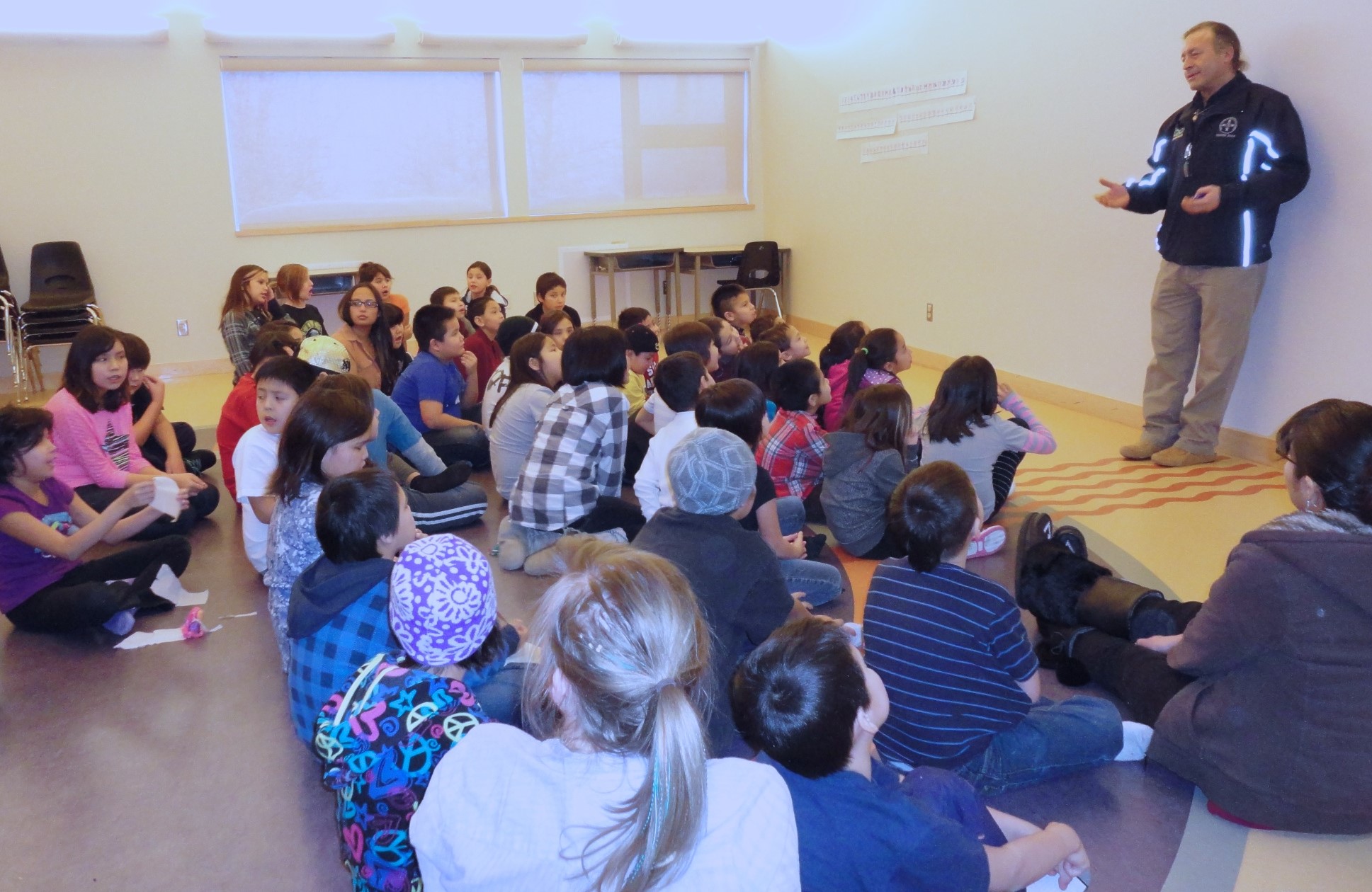We acknowledge that we live on the traditional territories of Indigenous Peoples that have cared for this land we call Canada, since time immemorial. We acknowledge the historical oppression of lands, cultures and the original Peoples of this country and we recognize our duty to work for Indigenous rights.
The WITS Programs Foundation attempts to be an ally of and work in harmony with Indigenous people in humble support of reconciliation. WITS supports Indigenous communities and people in many ways:
- WITS subscriptions are free to Indigenous schools. (see WITS in Indigenous Communities below)
- We endorse the United Nations Declaration on the Rights of Indigenous Peoples (commonly called UNDRIP).
- Read the full UNDRIP declaration in this PDF, or
- share this UNDRIP for Indigenous Youth PDF with your students.
- Past and current program development is informed by Indigenous educators.
- With a collaborative community-led approach, WITS Programs are easily adapted to local cultures, and have been started in several dozen Indigenous community schools.
- Information about WITS is available in Cree ᓀᐦᐃᔭᐏ. and our flagship children’s book, Walrus Gift, was translated into SENĆOŦEN, a Coast Salish language.
- All WPF staff have been educated in Indigenous cultural safety.
- Representatives from our team attend the FNESC Indigenous Education Conference.
- We have an ongoing partnership with Naut’sa mawt Resources Group, an Indigenous-led business of the Naut’sa mawt Tribal Council.
Classroom Resources
WITS Book lists include a number of suggestions and lesson plans for books written by Indigenous authors and discussing Indigenous experiences, knowledge, and cultures. Subscribed schools (free for Indigenous schools) can access our store to purchase books and download lesson plans for the classroom.
Orange Shirt Day is a growing national movement that encourages education about, recognition of, and support for survivors of the residential school system. To help your students understand why your school honours Orange Shirt Day, check out the resources for teachers on the Orange Shirt Day society website.
Land Acknowledgement
WITS Programs are delivered throughout Canada, and thus take place on the territories of the many Indigenous peoples – First Nations, Inuit, and Metis – who have made their homes on this land for millenia.
Those close to the WITS head office work, play and benefit from living in the unceded territories of the Lkwungen (Songhees) & Wyomilth (Esquimalt) peoples of the Coast Salish Nation, and commit to continued learning and to acts of reconciliation and justice.
WITS in Indigenous Communities & Schools
Many Indigenous communities have started WITS Programs. Most schools in the Northwest Territories use our WITS Program, as do Indigenous schools in the other two territories and most provinces in Canada. We are proud to have strong relationships with Qu’utsun Smuneem School of the Cowichan Tribes in BC, Joe A. Ross School of the Opaskwayak Cree Nation in Manitoba, and many others. WITS supports Indigenous communities and people with the greatest of respect.
Little Pine First Nation, Saskatchewan, started WITS in 2012. See their experience in this CBC News story
The photo below features a Dene elder speaking to children about WITS in Kalemi Dene School, Yellowknife, NT:
“I am the Indigenous Program Assistant at Connections Community Services Society in Richmond, BC. I had the pleasure of meeting you at the First Nations Educators conference this year (2023). On the last day of the conference I had stopped off at the (WITS) table and I received free books from the kindest person. I cannot thank you enough for your contribution to our organization. It warms my heart to write this.. Kleco Kleco. that’s Thank you in my language”
 Jeannie Jacobson
Jeannie Jacobson
INDIGENOUS PROGRAM ASSISTANT


